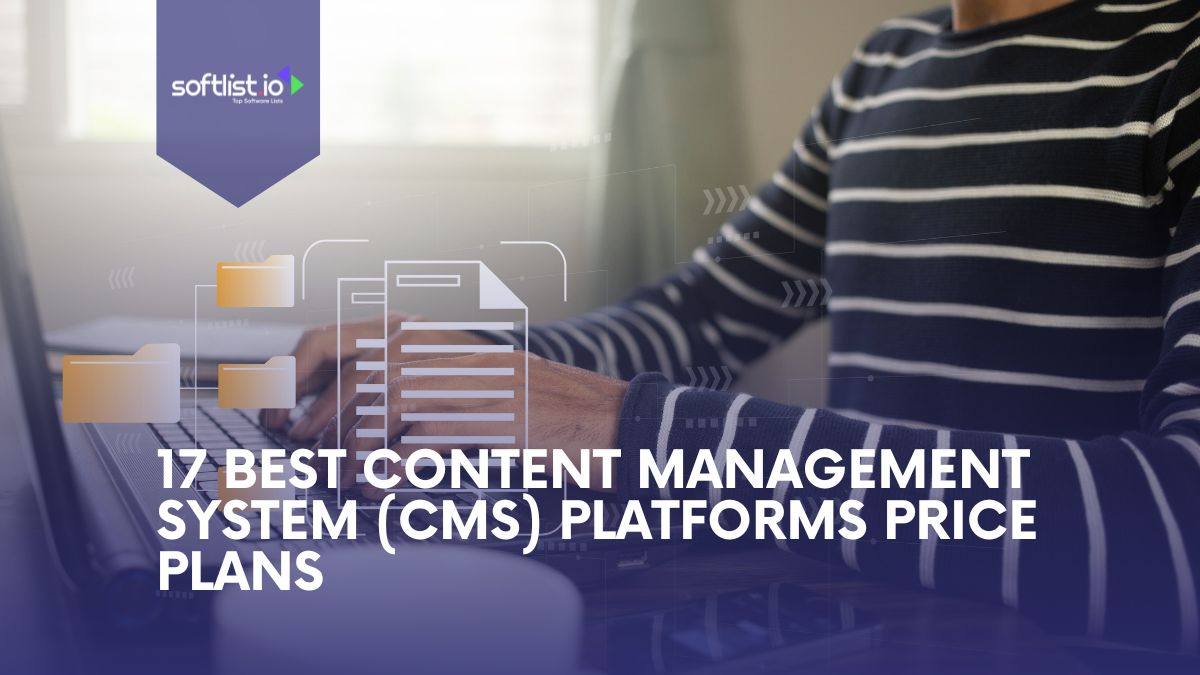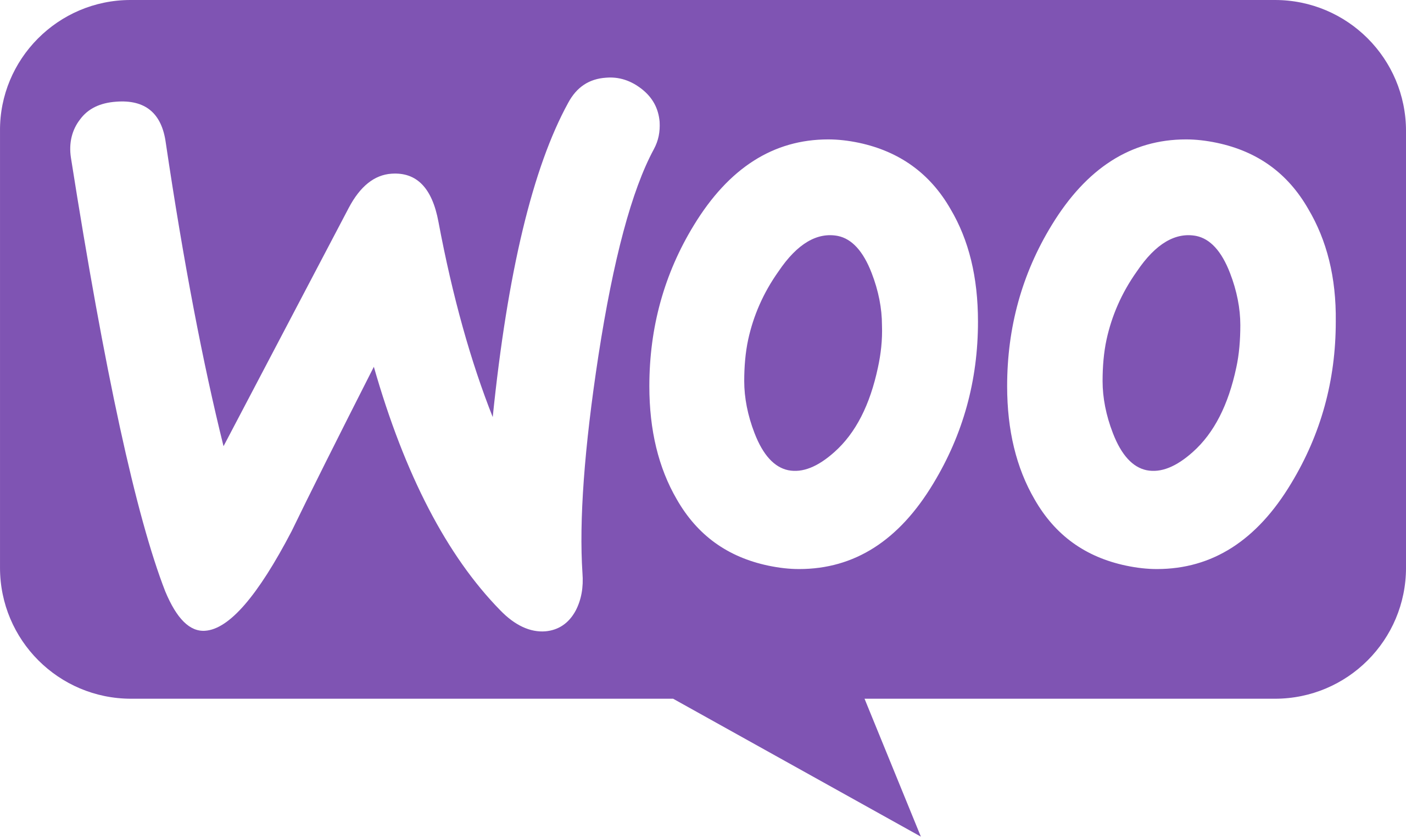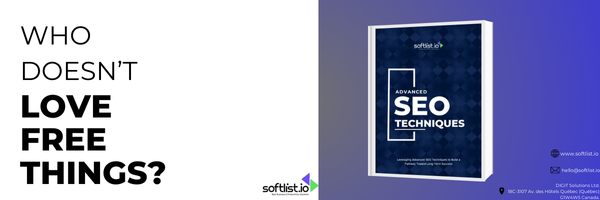Choosing the right content management system (CMS) is essential for businesses and content creators who need to create and manage content efficiently. Whether you’re handling digital content for a website, blog, or an enterprise content platform, a CMS helps you publish content and organize it seamlessly.
From document management to complex enterprise content management, the best CMS platforms offer tools for various needs, ensuring that you can manage any type of content effectively. With a robust content management application, users can centralize their materials in a content hub and even distribute content across multiple channels.
Interested in learning which CMS platforms provide the best features and pricing? Read now to explore the price plans of the top 17 CMS platforms.
Webflow
Webflow is more than just a drag-and-drop editor. It’s also a powerful tool for managing content on your site with a built-in CMS that allows you to add blog posts and edit text from within the app. The drag-and-drop interface lets you quickly assemble a site with pre-built templates or start from scratch. Webflow also offers an intuitive visual editor that makes creating complex, responsive layouts for your page’s web hosting easy. The CMS also includes built-in SEO tools so that you can optimize all of your content for search engines.
Pricing:
- Starter: Free
- Basic: $14/month billed yearly
- CMS: $23/month billed yearly
- Business: $39/month billed yearly
- Enterprise: Contact website
Take control of HTML, CSS, and JavaScript in a visual canvas. Webflow generates clean, semantic code that’s ready to publish or hand to developers.
WooCommerce
WooCommerce is a great content management system (CMS) platform that’s easy to use, flexible, and open source. It’s a powerful tool that can be used to build and run an online store, but it’s also much more than just a shopping cart. WooCommerce was built for small- to medium-sized businesses looking to sell physical products online. Still, the platform’s flexibility makes it an excellent solution for any website.
Pricing:
- Contact WooCommerce for pricing details.
Let customers subscribe to your products or services and pay on a weekly, monthly or annual basis.
VevDesign
VevDesign is a Content Management System (CMS) that lets you build and manage websites without technical knowledge. It provides the tools to build beautiful, mobile-friendly websites quickly and easily, giving you complete control over the look and feel of your site’s best cms platform custom domain. VevDesign is designed for businesses of all sizes, from small to large corporations. It comes with hundreds of ready-to-use templates and themes – so you don’t need any design skills or experience. You can also create custom templates or themes using our online editor.
Pricing:
- Contact VevDesign for pricing details.
Contentstack
Contentstack is a content management system (CMS) platform that makes it easy to build, maintain, and manage your website. It’s built for design agencies, freelancers, and small businesses who want to create beautiful websites with no technical knowledge required. Contentstack is a cloud-based CMS platform that allows you to build, host, and manage your website all in one place. The easy-to-use interface makes it simple to create your site quickly and easily without any coding knowledge required. Contentstack unique drag-and-drop editor makes it easy to add images and text anywhere on the page and social media sharing buttons and other features quickly and easily.
Pricing:
- Contact Contentstack for pricing details.
Canvas CMS
Canvas CMS is a Content Management System (CMS) that allows you to create, edit and publish your site easily. The Canvas CMS started as a content management system for creating e-learning courses. It has since been expanded to cover all website creation and management aspects, including blogs, forums, and media galleries. Canvas allows you to create unlimited websites for life at no cost. You can even add more than one site to your account to manage all your online properties from one place.
Pricing:
- Contact Canvas CMS for pricing details.
Duda
Duda is a fully-featured CMS that offers a unique approach to managing your website. The system is built using the best practices of other established CMSs such as WordPress or Drupal but has been created to be easy to use, simple to install and update, and requires no technical knowledge at all. Duda is also fully customizable. The content management system comes with pre-built themes and layouts, but if you want to change something about your website, you can easily do it using the built-in drag-and-drop builder.
Pricing:
- Basic: $14 per month, billed annually
- Team: $22 per month, billed annually
- Agency: $44 per month, billed annually
- White Label: $149 per month, billed annually
Sitecore
Sitecore is a web content management system (CMS) that allows you to build and manage websites, intranets, and extranets. It features a flexible architecture that combines the power of multiple back-end technologies. Sitecore is based on a modular architecture separating the front-end from back-end modules, allowing you to choose the components to install based on your needs. This modular approach means you don’t have to install everything just to use a few features.
Pricing:
- Contact Sitecore for pricing details.
Appy Pie
Appy Pie is a content management system platform that allows you to create your own website and apps. It’s easy to use and looks great on any device. Appy Pie is a CMS software that offers a full suite of tools to help you build websites and apps without any coding knowledge. No limits or restrictions exist, so you can create anything you want with Appy Pie. The Appy Pie provides you with all the tools to create beautiful websites quickly. You can customize your site by using the drag-and-drop builder or their custom website editor.
Pricing:
- Start: $18/month
- Grow: $36/month
Sitefinity
Sitefinity is the most powerful, flexible, and affordable content management system platform that you can use to build your intranet or public website. It supports all the latest web technologies, including HTML5 and CSS3, and comes with a rich set of features that help you create a dynamic website that’s easy to maintain and update. The Sitefinity CMS platform uses a unique approach to content management that makes it easy for non-technical users to add, edit, and manage content on their websites. This allows business users to focus on their core business activities instead of spending time building those skill sets.
Pricing:
- Contact Sitefinity for pricing details.
Magnolia
Magnolia is a powerful Content Management System (CMS) that allows you to build, publish and manage your digital presence. It has an intuitive user interface enabling non-developers to create complex websites without writing code. And it’s built on a flexible, reliable, and scalable open-source platform. Magnolia CMS is available in both free and paid versions. The free version allows users to create their sites and manage their content. The paid version includes additional features like support for multiple locations, collaboration tools, and extra storage space.
Pricing:
- Contact Magnolia CMS for pricing details.
Contao
Magnolia is a powerful Content Management System (CMS) that allows you to build, publish, and manage your digital presence. It has an intuitive user interface enabling non-developers to create complex websites without writing code. And it’s built on a flexible, reliable, and scalable open-source platform. Magnolia CMS is available in both free and paid versions. The free version allows users to create their sites and manage their content. The paid version includes additional features like support for multiple locations, collaboration tools, and extra storage space.
Pricing:
- Contact Magnolia CMS for pricing details.
Craft CMS
Craft CMS is a popular content management system that was created to help small businesses and individuals build and manage their own websites. It’s an excellent option for those who want to keep things simple, but some more advanced features can help you make your site even better. Craft CMS is free and open source, so you can use it however you want without paying any licensing fees. It’s also easy to install and configure, so you can get up and running quickly.
Pricing:
- Solo: Free
- Pro: $299 per project
- Lite: $199 per project
- Pro: $999 per project
Fork
Fork is the content management system platform that can help you create, manage, and grow your website. It’s free and open source, and it supports over 40 languages. Fork has everything you need to publish your content online – including an easy-to-use editor, a powerful API, and an awesome drag-and-drop interface. The Fork API makes integrating your favorite CMS with other applications accessible, so you can keep your content in one place no matter where you are. It has been designed from the ground up to help you manage your website and its contents. Fork aims to provide an easy-to-use interface for users with no programming skills.
Pricing:
- License: $49.99
PyroCMS
PyroCMS is a free and open-source content management system (CMS) that offers a robust set of features that can be used to create complex websites with ease. The PyroCMS team created the project to provide developers with an all-in-one solution that includes everything they need to build websites and applications. The PyroCMS platform was developed with a focus on providing flexibility and control to developers. It does not impose any limitations on how you want your website or application built, as it allows you to use any third-party libraries or frameworks in your projects. The PyroCMS team also supports popular frameworks like Laravel and Lumen, so you can leverage these tools if needed.
Pricing:
- $25/month per user
CMS Made Simple
Contact CMS Made Simple for pricing details.CMS Made Simple is a web content management system for businesses and organizations who want to manage their website themselves. It’s simple and flexible, with an easy-to-use interface that makes it straightforward for users to add and edit pages, upload images or other media, and create pages from templates. The CMS Made Simple platform is open-source software, meaning anyone can use it free of charge. However, there is a premium version available with additional features and support.
Pricing:
- Contact CMS Made Simple for pricing details.
Zephyr
Zephyr is a content management system (CMS) platform that is used by businesses of all sizes. Zephyr is a powerful, easy-to-use, and affordable solution for managing content on any website. Zephyr allows you to build professional websites with no technical knowledge required. With Zephyr, you can create a website in minutes with the easy-to-use drag-and-drop editor. You can manage your site content using an intuitive visual interface or through code.
Pricing:
- Contact Zephyr for pricing details.
Agility
Agility is a content management system (CMS) that is really easy to use. It can help you quickly create, manage, and maintain a website, e-commerce site, or blog. Agility includes many features that make it easy to get started and manage your website. The Agility CMS platform offers everything you need to build and maintain a website without coding. The Agility CMS platform provides easy-to-use tools and templates that enable anyone to create beautiful websites with no coding required, so you can focus on what’s important — your content.
Pricing:
- Starter: $1,499 Per month – Paid monthly
- Pro: $2,999Per month – Paid monthly
- Enterprise: Custom
Use Cases of Content Management System Platforms
E-commerce Websites
One of the most common uses for popular CMS platforms is managing content for e-commerce websites. These platforms help businesses store content, such as product descriptions, images, and customer reviews, in a centralized system. The content management system works by allowing users to easily update and deliver content like pricing or promotional offers.
A CMS designed for e-commerce, such as Shopify or WooCommerce, includes specialized tools for managing inventory and handling transactions, ensuring smooth integration between product management and customer experience.
Corporate Blogs and News Websites
Many businesses use a CMS to handle corporate blogs or news websites, where frequent updates and new content are essential. Popular CMS platforms like WordPress or Drupal provide simple interfaces for content creators to take the content they’ve written and publish it directly to the website. The content in a CMS can be scheduled, edited, and revised easily, helping maintain an active, engaging website. The features of a CMS, such as tagging and categorization, also make it easier to organize large volumes of articles.
Content as a Service (CaaS) for Mobile Apps
A more advanced use case is leveraging content as a service (CaaS) to deliver content from a CMS to mobile apps or other digital platforms. In this scenario, the content management system works in the background to manage media, text, and user-generated content, which is then sent to various devices. Platforms like Contentful and Strapi are CMS designed for this purpose, offering APIs to ensure seamless integration across different endpoints while maintaining centralized control of the content in an interface that is user-friendly for developers.
Portfolio and Personal Branding Sites
Freelancers, artists, and professionals use popular CMS platforms to showcase their work in an easily manageable way. The features of a CMS allow users to quickly upload their portfolio, bio, and other media, providing a simple interface to manage their site without technical expertise. A CMS designed for portfolios, like Squarespace or Wix, includes templates and content management tools to help users create a visually appealing online presence.
Conclusion
When choosing the right content management system for your business, it’s essential to understand how each type of CMS fits your needs, whether it’s for a content marketing team, learning management system, or content development team. Have you ever wondered how seamlessly a CMS can help you add and edit content, distribute content to any device, or even remove content effortlessly?
By using content management systems, you can control the content of your website and manage various types of digital content in an intuitive interface. So, whether you’re looking for a system to build your website or streamline content marketing, now is the time to explore how a popular CMS can enhance your workflow.
Ready to simplify managing content on a website? Dive into the 17 best CMS platforms and find the perfect fit for your needs! If you want to learn more about CMS, read our other informative blogs, and don’t forget to subscribe to enjoy the hottest deals and discounts on selected software!
FAQ
What Is a Content Management System (CMS)?
A Content Management System (CMS) is a software platform that allows users to create, manage, and modify digital content without requiring specialized technical knowledge. CMS platforms like WordPress provide tools to manage various types of content, from blog posts to eCommerce pages, making it easier for businesses and individuals to handle content creation and publishing tasks.
How Much Do CMS Platforms Like WordPress Cost?
The cost of CMS platforms like WordPress can vary. While WordPress itself is open-source and free to use, premium themes, plugins, and hosting services may come with additional fees. Other CMS platforms offer a range of pricing tiers, from free plans for basic features to more advanced paid plans that include features like digital asset management and enhanced content delivery applications.
What Are the Different Types of Content Management Systems?
There are various types of content management systems, each designed for specific needs. These include component content management systems (CCMS) for managing content at a granular level, digital asset management (DAM) systems for handling media files, and enterprise CMS platforms that offer extensive capabilities for large organizations. Choosing the right CMS platform depends on the type of content creation and delivery you require.
Can I Use a CMS Platform to Build a Website?
Yes, you can easily use a CMS platform to build a website. Platforms like WordPress, Drupal, and Joomla allow users to create professional websites with minimal coding. These systems enable users to manage content with ease, making them ideal for businesses and individuals looking to establish an online presence without extensive web development experience.
How Do CMS Platforms Support Content Delivery?
Most CMS platforms come with built-in content delivery applications that ensure smooth and efficient distribution of your content. Whether you’re managing a blog, an eCommerce site, or an enterprise-level platform, these systems optimize the delivery of your digital content to users across various devices and locations.
What Is the Best CMS for Managing Enterprise Content?
For managing large-scale enterprise content, platforms like Sitecore, Adobe Experience Manager, and Kentico are popular options. These CMS platforms provide comprehensive tools for managing digital content creation, analytics, and content delivery across multiple channels. They also offer robust features for document management and component content management, ensuring that enterprises can manage their content efficiently and effectively.
What Is the Best CMS for Web Content Management?
Some of the most popular content management systems for web content management include WordPress, Drupal, and Joomla. These CMS platforms are widely used due to their flexibility in web design and ease of use. Each CMS allows users to easily create, manage, and display content across websites, making them ideal for both beginners and professionals. These platforms also offer various plugins and extensions to enhance functionality, including digital asset management features for managing media files.
How Do CMS Platforms Handle Digital Asset Management?
Many content management systems are equipped with digital asset management tools, allowing users to organize, store, and retrieve media files like images, videos, and documents. This feature is especially useful for businesses using a content management system to manage large volumes of media-rich web content. Content management solutions like Adobe Experience Manager and Sitecore are specifically designed for handling digital assets while offering robust web design and content management features.










